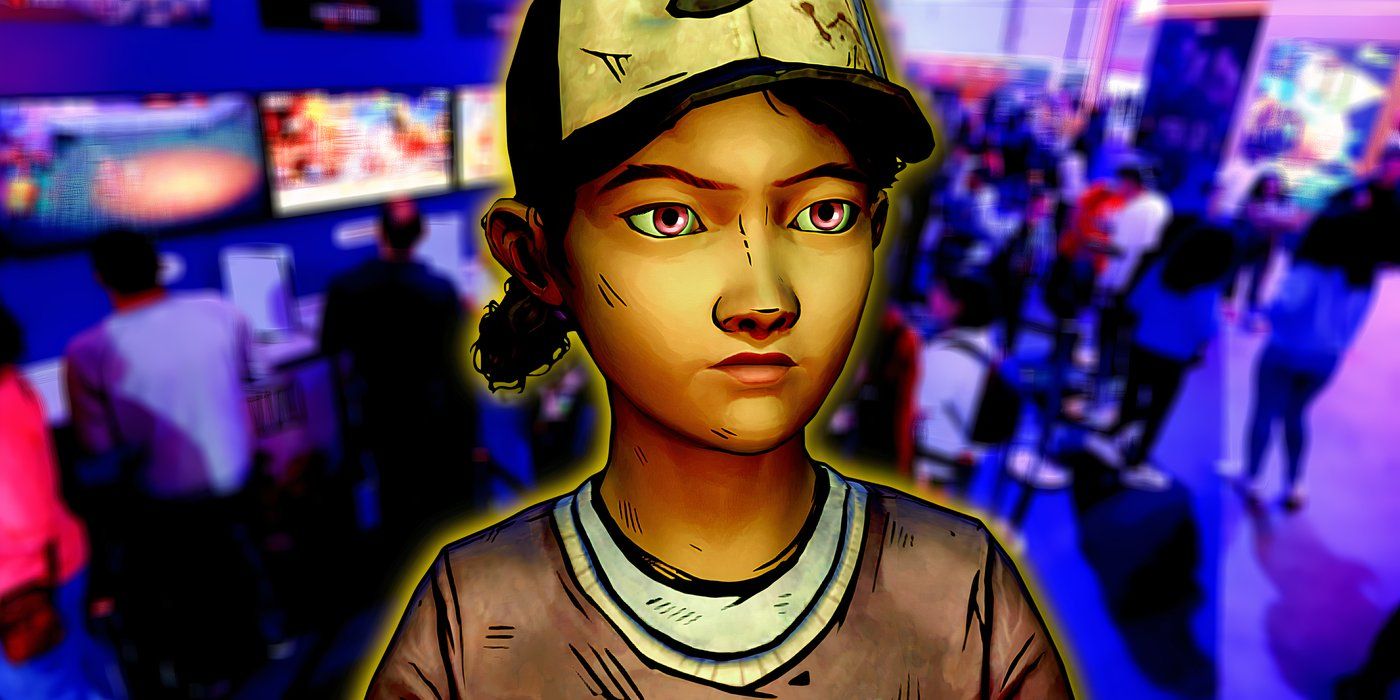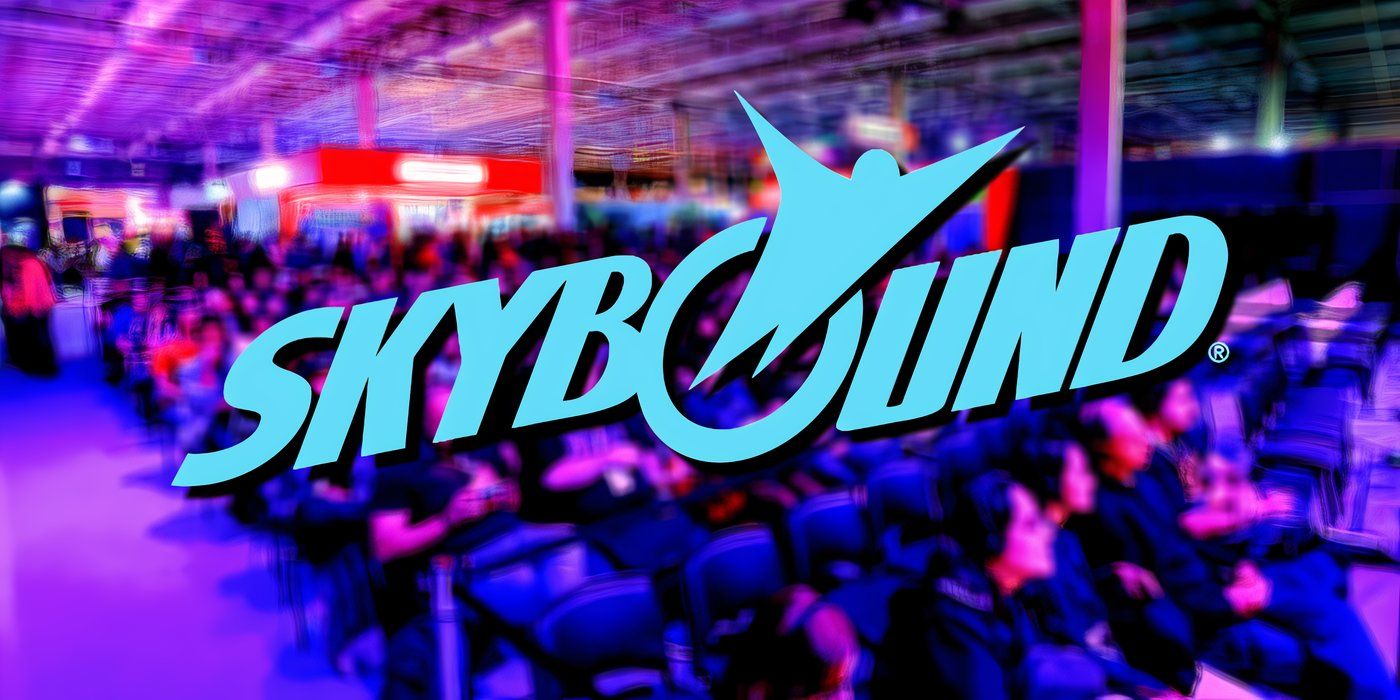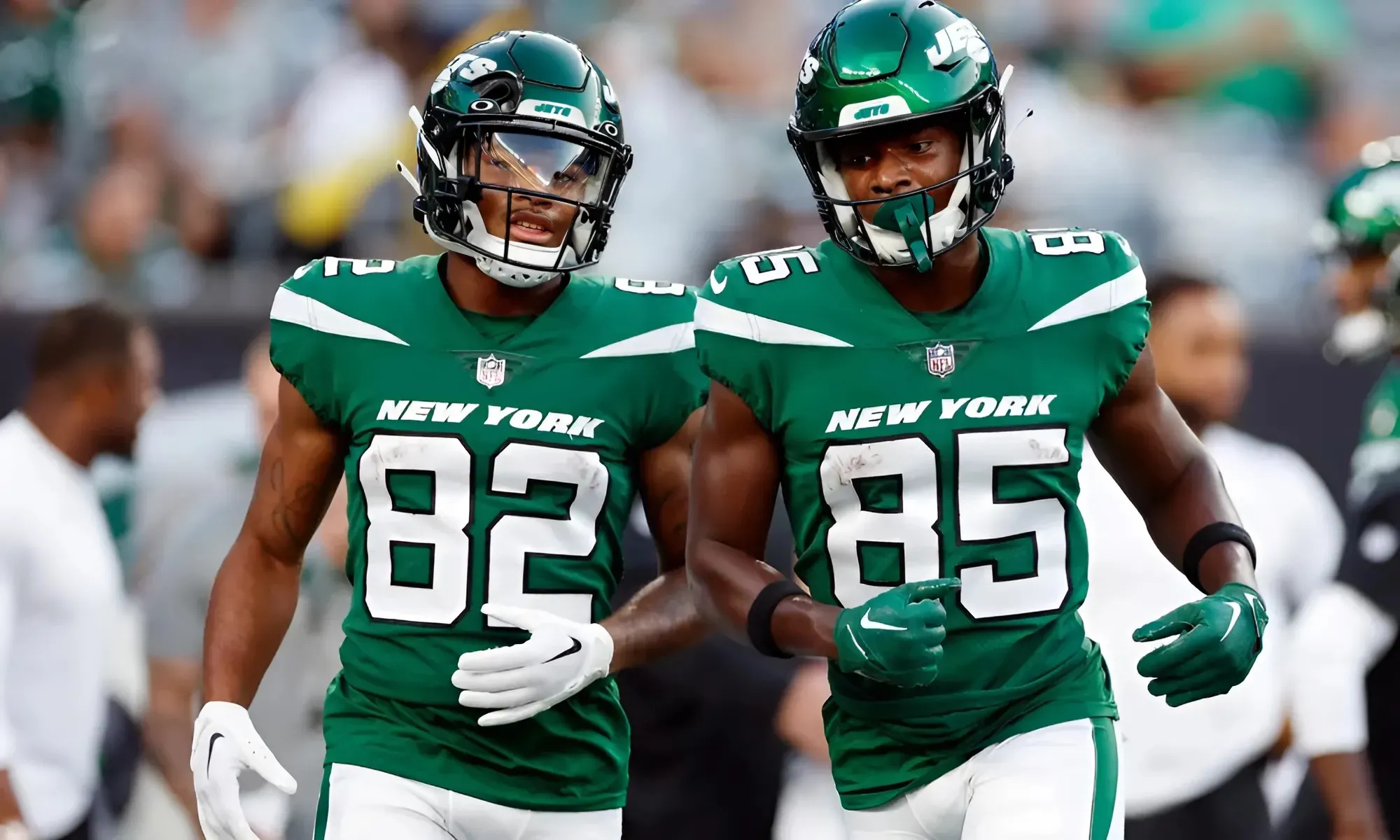Summary
- Skybound Entertainment is expanding IPs across platforms with unique content to avoid simple copies.
- They believe we are not in a golden age of video game adaptations yet, but we are on the road to it.
- Skybound is investing in global talent, especially in Brazil, seeking to partner with local creators for fresh opportunities.

Skybound Entertainment, the company behind The Walking Dead and Invincible comic series and several of its adaptations, is coming to Brazil for Gamescom Latam 2024. Two of its high-ranking members, the CEO David Alpert and the co-chairman Jon Goldman will address a keynote speech during the event.
The idea is to talk about how Skybound is expanding its IPs across multiple types of platforms and the challenges involved in not creating only adaptations but developing products that share a universe but are not simple copies within other formats. Ahead of the event and their presentation, Screen Rant had the opportunity for an exclusive interview with Alpert and Goldman.
The Challenges Of Creating Content For The Same IP Across Multiple Platforms

Screen Rant: Having worked across the board with different formats for these popular IPs that everybody knows, what do you consider to be the most difficult part of adapting a TV show into a video game nowadays?
David Alpert: Yeah, I think the main thing with adapting a show into a game is finding the unique position that you're going to offer, right? So what is the focus? How do you make it so that it's not 80s-style where you're recreating the same experience that you had watching the show or watching the movie, but now you're just doing the same thing? How does it add something to the experience of living in this world, right? Bruno, I don't know how familiar you are with, have you ever played the Telltale Walking Dead game?
Yes, I have. I love it a lot.
David Alpert: Okay, great. So you get it. You were like, you don't want to tell the blind story. You want to expand the universe. How do we, you know; there's a scene in that first episode where Glenn appears to know that it's in the same universe as Walking Dead, that it's contiguous. It gives you a sense of time and space and geography. But it doesn't necessarily say "oh, we're going to follow Daryl Dixon and Rick Grimes." We're going to look at this new set of characters, right? And that was really important to us. We try to do that in every one of our stories, broaden and expand the world. How do you find the thing that's authentic and organic and makes the show so successful? And how do you sort of translate that into a broader game? That's really where we start .
People say we're living in a golden age of video game adaptations. What's your perception of that quote? And how do you see that moving forward now that games are a more consistently mainstream thing?
David Alpert: So I completely disagree . I think we lived in the poo-poo era for so long that we've now moved out of the terrible, and we're getting to a place where there's been some really good ones. But I think it's like we're in the wrap up, right? I really enjoyed the Sonic the Hedgehog movie in part because I didn't necessarily love the World of Warcraft movie, right? I went from Warcraft where I'm like, okay, I guess it's better than the Doom adaptation. That's a pretty low bar in terms of what's going on there.
It reminds me so much of those early 90s and 80s adaptations of Marvel movies . If you look at the original Punisher and Captain America, those were pretty garbage. And then you look at what they became later and that's such a massive transformation. And I feel like that first Spider-Man movie, you're like, "oh, okay, they're going to do something here." That first X-Men movie: "oh, they're going to do something here." And it wasn't until you hit that Iron Man movie where they introduced the MCU and you go, "oh, here's where we're going." And I feel like we're on that road. We're maybe a year, two or three years away from the real Golden Age . But I think there's still a lot more ground to go before we hit the Golden Age.
Jon Goldman: So I really liked Sonic 2. I did not like Super Mario as much as I expected to, for example, because it did feel like a giant product placement plug . And I guess one thing I would just maybe try and parse a little bit is that a lot of people do adaptations. And that sort of implies that there's this sort of "main thing." One thing we always say at Skybound is that there's not a primary and then a bunch of ancillaries. Everything's primary for us . The video game needs to live as a video game, as a unique piece of content, because the fan likes our universe and they don't think of it as primary, secondary, tertiary; like, "oh, this thing is just for making money."
They want it all to be good. And we've tried to organize our company unlike others, where we do all these things natively and internally, as opposed to "we're a video game company and we've licensed out the movie rights to somebody else." We do it all ourselves and they all stand alone. There could be a game, unlike the Telltale game, where it's just about the mechanics or something, because that's what we think will be the most fun for that character universe and that genre. So I think - I don't know if I've captured the distinction completely, but I think adaptation is kind of an old-fashioned word for what we're trying to do , which is really interact with our fans about the universe completely, wherever it makes sense, whether comic, TV, video game, podcast, action figure, whatever it is, we're trying to have that direct relationship with our fans.
20 or so years ago, we had all these blockbusters that then would become movies. And now what you are saying is you are treating games and movies and TV shows with the same level of importance, and not just getting one hit and then transforming that into several other smaller things, right?
David Alpert: Yeah, but I think that applies even broader, right? If you look at GI Joe and Transformers and comic books. We're going and treating them like these are absolute gems and treating them the same way we would treat them as if we're starting a brand new story, right? So we're aware of the audience, we're aware of the fan base, we're aware of the history, we're aware how that audience maybe hadn't been treated so well at certain periods of time, but there was a demand there. So we're going to give them the highest quality, the way that we would want to find Transformers, the way we want to find GI Joe, we're giving that to the audience as well.
Would you say that there are risks to this interconnection of universes across multiple forms of media that Skybound is working to achieve?
Jon Goldman: The risk is always execution risk. It's being seasoned enough to say no to something that isn't good enough or to learn from it . Now in video games, for example, games that are in live operations, you can always improve. People love The Walking Dead, they love zombies, they love zombie games, they love zombie everything. So execution risk is something we can control because we're good at making stuff and have, like that's been our skill set forever. Figuring out what the right thing to do is for the fans is really important. And increasingly, we're spending a lot of time interacting with fans directly so that we can partner with them to give them what they want.
David Alpert: I guess I would say a little differently in that I think the risk was always there, but because of the differences between the media, right, because of how siloed each media was. You were able to sort of - if you had a stinker, you were able to sort of like cordon it off and the rest of the brand. Given that everything lives digitally now, there really is no way. So cross-contamination is not only likely, but it's inevitable. If you have a bad adaptation of something, you will lose fans . Your fans that would have come to you will go away because they will have found they don't trust you.
Jon Goldman: They don't trust you.
David Alpert: That's right. So, you know, it's the same thing where movies used to open all the time, or games used to sort of be bought all the time, before the reviews came in and people would then be stuck with, "oh, I went to Walmart, I bought the game, I've gone home." And you've gotten to the movie, you know, whereas now the Rotten Tomatoes or Metacritic reviews come out and people make their decision without actually having seen the movie or playing the game.
Jon Goldman: And you can cancel a digital thing at any point. If you're watching Invincible on Amazon Prime, you can just click off it because you've paid your subscription fee. And that's why it's so important to the extent that we actually built our own animation studio and animated directly because we can't rely on other people . And it turned out awesome. And the fans seemed to agree that that's because of the level of control and care that we demanded.
We have Final Fantasy XIV, that game is really solid narratively because it's a 10-year story, and then we have shorter games that take less than an hour to play, like Florence, which hit as hard as Final Fantasy XIV. I'm wondering how you can reach that narrative level when you're adapting stuff from other media into it. There's usually this boundary of interactiveness in video games that doesn't translate to movies, comics, and TV shows.
Jon Goldman: So I think that does come back to if we're going to make a video game, we're going to make a great video game, and luckily for what we're doing, the IP we've developed over literally decades, we know the universe really well, and we partner with the creators. Robert Kirkman's our third partner in the business, and is a very active, part of it . So we make the right game, and if it [needs] a narrative component, it has a narrative component. If it has just cool mechanics, that's because that's what the fan's going to want in a video game. Well, they know the narrative from the comic book and the TV show, and I think a lot of times game makers have maybe misstepped in trying to force the narrative or done bad narratives . So we try and treat each medium on its own, to be good on its own, but to sort of fit in the fantasy that the fan would have.
David Alpert: It's really important for us to connect in that specific way, because I think if you look at something like Final Fantasy, all that narrative and build up is done inside of the game itself. But if you're doing Final Fantasy 14, you may or may not have played the previous 13, so you still have to give them on-ramps along the way. So we try to do the same thing, reward fans who come in from this as their first encounter, but also give them that excitement of saying, hey, we see you, we hear you, we acknowledge you, if you've done everything inside of the universe that we're working in.
Now, 14 years down the road with Skybound, this has always been a part of your ethos, but how are you shifting your perception on how you produce these products nowadays, as opposed to when you first started?
David Alpert: Well, the difference today is I think we're living in a world that's just filled with plenty. So there's 13,000 new video games that came out on Steam last year, right? Growing up, there was whatever you buy at the store, there were three networks in the United States; we grew up in a time of scarcity. Now you're living in a time where you're competing against every song that's ever been released, you're competing against every movie that's ever been made, every video game that's ever been made, plus all the new stuff that's coming out all the time . You have to really examine the reason for being at a much deeper and greater level than ever before, because the alternatives and the opportunities to not choose your product, whatever it is, are higher than ever before.

You are coming to Gamescom in Brazil next month. To talk a little bit about this, what can the public expect from your presence, your keynote? And I heard there are also teasers, what can they expect?
David Alpert: Well, I think one of the biggest things and one of the big reasons we're coming is that we believe in Brazil, right? We believe in Brazilian culture . For years, we've had massive fans reaching out to us from Brazil about our properties, about Walking Dead, Invincible. Some of the most vocal fans in the world are from Brazil. Thankfully, we have Google Translate now, so that we can actually understand a lot of what they're writing us, and they have a lot of great ideas. We love the fact that Comic-Con, the biggest Comic-Con in the world, is now in Brazil, and we want to be in business with Brazil. So, we want to be in business with video game creators, screenwriters, television and film production companies. We want to find the next great talent in Brazil and make a global hit with Brazilian talent.
Jon Goldman: I can’t disagree. A lot of people don't realize we now have direct production in the Nordics, and we're producing a TV show in Japan. We produce the biggest hit show right now on the entire continent of Africa. We're producing stuff in Spain. There is an audience, fans all over the world, and interestingly, we actually live in this unique period where the incredibly important market in the U.S. is now watching subtitled foreign content . So, it can have global consequences in a way that was never possible before. Also, just being completely honest, I've never been to Brazil before. I don't think David has. I'm pumped to visit and experience it completely.
So, the idea is not just to showcase Skybound to Brazil, but actually try to insert yourself in the market here, find people to help spread out the word, let's say, the word of Skybound across the region?
Jon Goldman: Yeah, and [...] I think that dovetails about our entire philosophy. When you talk about making a video game about Walking Dead, we don't just try and do the licensed version of the same story. We're always trying to do new stuff in the same way. We don't just want to make the stuff we're already making. We're always looking for new, fresh opportunities.
David Alpert: The thing I would say is, given the sort of amazing queer talent in Brazil, the population, the fast-growing nature of the economy - we think it's highly likely that the next breakout, like Squid Game, and whether it's a TV show, movie, video game, or whatever, it's very likely that it's going to come from Brazil . We want to be there, and we want to help that process along, and partner with, find those great creators, and bring it out. We felt the best way for this to happen is for us to go to Brazil. They're like, "hey, you're Skybound," - some of you know, some of you don't, but we believe in Brazil, we want to be in Brazil, we want to come here and meet you guys.
I'm wondering if you have any other thoughts on Gamescom, your presence here, the keynote that you will be addressing.
Jon Goldman: I think it's really awesome when you come from a place like the United States, where you believe, even if you know otherwise, that you think you're the center of the universe, or this is where all media happens. I think it's great to feel other places, feel the excitement, and recognize the creative energy that exists outside of the bubble we're in. And that's actually been our superpower, is that we find creators where other people aren't looking .
We're going to do this as a little bit. I'm going to ask David Alpert, not now, but at the event, to tell the story of how we first met Robert [Kirkman] and whatnot. Because David was looking at places that other people weren't looking 20 years ago. That's kind of in our DNA, is that everybody's taking meetings in Beverly Hills, we're going to take meetings in Reykjavik, Iceland . Before you know it, we're adapting a Japanese manga with Swedish partners filmed in Iceland for distribution around the world. That's kind of what's unique about Skybound, is how we pull all these things together from places that other people aren't necessarily looking.
David Alpert and Jon Goldman’s keynote will occur on June 28 at the Journey 2 stage at Gamescom Latam. The event itself will happen from June 26 to June 30 in São Paulo, Brazil.



